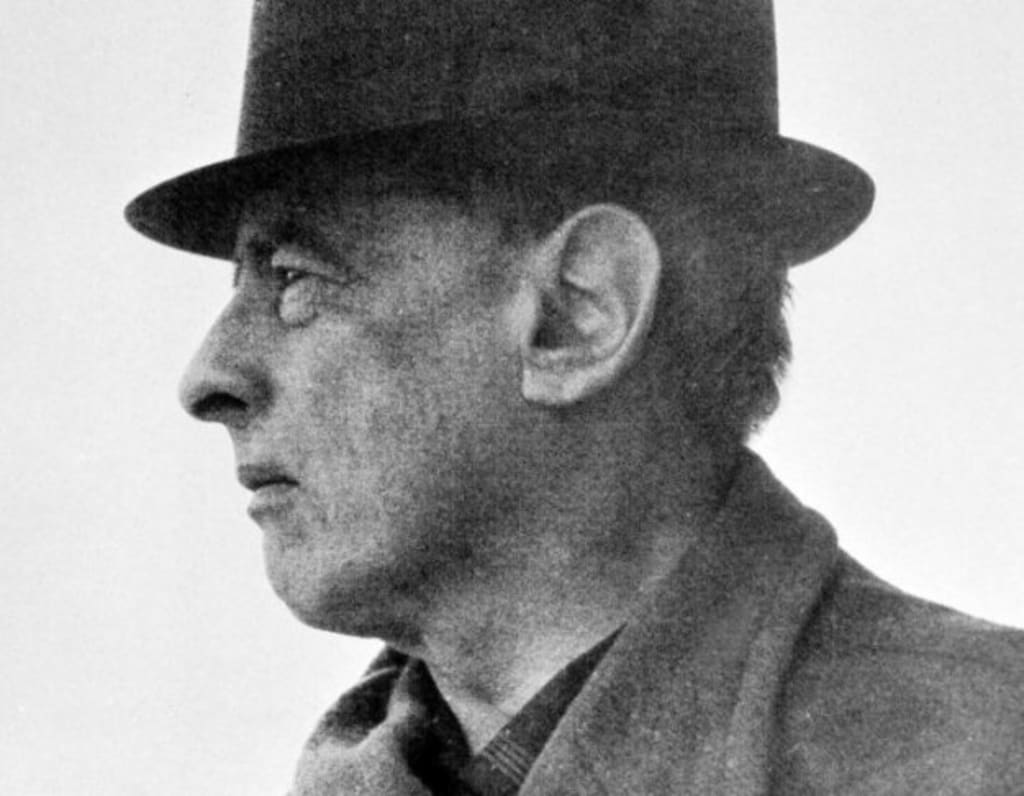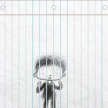Talking Witold Gombrowicz's Trans-Atlantyk
A Walk In a Strange Place

Recently I had been working on a few projects with my mentor when she proposed the idea that I, an American of Polish descent, consider reading more work from my ancestry. I of course came to this with my own prejudices, as I always imagined Polish works would be, well, grim to say the least. For reference, at this time the most I had known about Polish would be men like Zdzislaw Basinski, known for his dystopian landscapes of a world conquered by hellish atrocities, or Eli Wiesel, who I had just assumed was Polish because his novel, Night, and if someone is writing about the Holocaust, they must be Polish. Excuse my American naivety.
We discussed the topic more over the next few months and my mentor, being someone who had spent six years living in Communist-occupied Poland, explained to me that part of my belief of Polish artists being more than your normal troubled folk had some truth to it. She explained greats such as Tadeusz Borowski and his novel, This Way for The Gas, Ladies, and Gentlemen, and how Borowski eventually went the way of Plath, sticking his head in his oven. These people did not live happy lives. Which, I don’t think I am telling anyone reading this anything new, being that many of these men and women were holocaust survivors. If you are interested in an idea of what I am speaking of, I have left a link to an excerpt of Borowski’s previously mentioned work, so that I may leave it as unsanitized and profound as it deserves to be. http://www.pelister.org/courses/topics/borowski/this-way-for-gas.pdf
With all this information, there is a consideration that this may all feel a bit like voyeurism. There is without a doubt that these stories exist for the sole purpose of never letting us forget about what happened in these places. Concepts we hear repeatedly about what we as humans are capable of. Which, even though I may sound like I am belittling the message, is maybe frustration for people besides me, because we can only look around and see much of the same happening. In a simpler context, it can be infuriating reading about burning houses and then looking up to your sofa in flames. I am not going to preach about society as a whole right now, but there is something terrifying to be related to this and today.
But, besides the song and dance that comes during execution, there were some writers that approached this from a different angle. This is when my mentor handed me a copy of Trans-Atlantyk by Witold Gombrowicz. She explained that the story is a retelling of what happened to Gombrowicz maybe just a day after Germany invaded Poland. As explained by Gombrowicz, he is a writer whose ship had just landed in Argentina, as many Europeans were traveling across the sea to visit such a place. Here, Gombrowicz is raveled into a series of disasters surrounded by the unworldly pre-World War II Polish society of Argentina. One that is ripe with prejudice, self-loving people who are obsessed with their standing in this world. Gombrowicz becomes surrounded by these people who are willing to do whatever it takes to keep the high standing that one is expected of a Polish countryman. Laughably enough, most of the people, especially the men, are noted to have already lost their standing considering their nation is at war and they are a bunch of expatriates, hiding on the other side of the world.
I came into this story expecting some odd trek across Argentina. I thought that this story was going to be Gombrowicz in the streets, begging for food or a place to stay while his Polish comrades turned their heads away from him. That is not the least bit close to it. The best way to describe this story is an oddly dark romp that leaves you forgetting that one of the worst atrocities in history is happening to these people’s relatives. These people spend most of their time partying and lathering each other in pointless compliments before turning their heads and tearing down someone else because they haven’t addressed the party in the dignified manner a Pole should. It’s surreal and at times, almost unbelievable how strange these people act. Eventually building into a truly odd and unique ending.
There is something to note here though, especially if you are as new to this type of reading as I am. Much of the humor in this story, at least for me, was baffling. Sometimes I was completely lost on what was going on. You will run into a series of pages where a crowd is described to be laughing in about every way possible. The first time you are hit with this odd writing style is possibly when Gombrowicz decides to head over to his local church and speak with the convent of his weakness in returning to Poland to fight. It rambles and can sometimes feel like the words of a madman, repeating and repeating.
I have a theory on why this is the way it is. The breath of the tirades is more than definitely a purposeful choice made on the end of Gombrowicz. I think this is one of the tools in showing us how nonsensical the situations Gombrowicz finds himself in, but that is also a problem of translation. I have heard that some books in certain languages aren’t even worth picking up. This being the fault of certain translators not translating the piece as well as it could be, or that it is in a language that just doesn’t work in English. An example of this is the word history. In English, we know what this means. The history of a building or a person. Your history, your family history, etc. In French, you have histoire, which also means much the same as in English, but also means story. We can talk about the semantics of the words here, but it is also the story of a place and as far as I am concerned, history is a lesson, the story is an adventure. When I ask your story, you and I both know I am asking for something completely different. Polish is rife with words like this. Some languages like Polish and German actually have words for situations or feelings that here in English we just don’t. One much of us would know is Schadenfreude, seeing pleasure in another’s pain. You also have Zugzwang, which is a word that describes the feeling of being forced to make a tough decision. I have a feeling that Trans-Atlantyk is littered with these phrases and that is where the difficulty comes in. As a translator, how do you fix this?
Nevertheless, I find Trans-Atlantyk to be a wonderfully funny story and a glimpse into a society that perhaps doesn’t exist anymore because it was essentially wiped out after World War II.






Comments
There are no comments for this story
Be the first to respond and start the conversation.